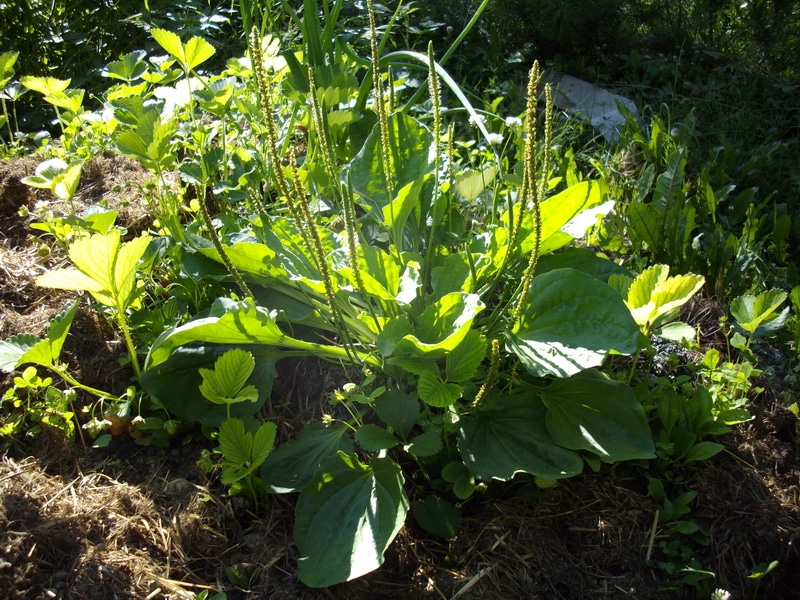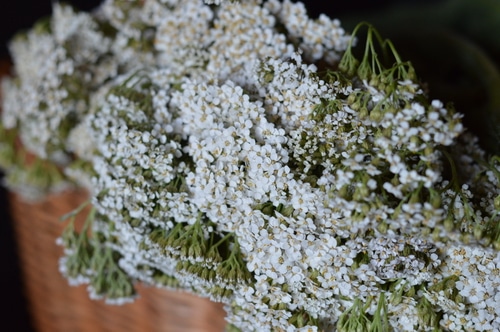Dear Yogis,
ZOOM TAROT TONITE 6.45. Free class. Email for your ID
STUDIO: Mon 1pm, Wed. and Fri. 5.30
ZOOM: Mon 6.30 Gita, Tuesday 7.30, Friday 6.45pm Free Tarot – Coming soon PAST LIFE TAROT COURSE.
To enquire or book for any of the above: yogafirst2@bigpond.com
With winter on the way, these are MY TOP FOURTEEN HERBS TO GROW IN YOUR GARDEN (or in pots on your deck). Once you have these you can schoosh up any meal or salad, plus you have a medicine chest ready to help in case of upset. Yarrow, Basil, Plantain, Lavender, Dill, Thai Mint, Catmint, Herb Robert, Greek Basil, Mugwort, Artemesia, Coriander, Parsley, Chives.
MEDICINAL HERBS TO GROW AND FORAGE.
If you keep bees, PLANTAGO is a herb you should encourage in your garden. If you get stung, find a plantain leaf nearby (they are always there). Mush it up in her fingers (or chew it to a pulp, a poultice) and put it on your sting, and in just a few minutes you will have relief.

Plantago — “Medicine Leaf”. Plantago is soothing; it’s used to draw poison out of a wound – scrapes, scratches, bites, rashes, and deep wounds. But it can also be used to soothe a stomach ache, and reduce swelling in a sore joint. Plantago/Plantain was once called “Medicine Leaf”. It can be used to stop bleeding, and to promote the healing of wounds and injuries. It can also relieve pain and inflammation internally, healing from the inside out. Both the leaves and the seeds are used in herbal medicine. The seeds are laxative and add fiber to the diet. The leaves have the drawing, soothing actions. Young plantain leaves can even be used as a pot herb or salad green. The older leaves get quite stringy, so if you want to eat them choose the young spring leaves, and of course, make a positive identification before you cook them.

Yarrow — “Wound Wort”
Another useful herb to know is yarrow which grows fabulously well in our climate. An opportunistic plant, you’ll see it growing on the roadside in many places and in areas where the soil is poor. Yarrow flowers and leaves are used to stop bleeding, use it for cuts, scrapes, nose bleeds and deep bruises – the kind you get on your shin when you meet the corner of the desk in the dark.
A YARROW FLOWER tea can make you sweat, opening capillaries and speeding up healing from viruses and fevers. It aids digestion and supports circulation and normalizes blood pressure. It is antimicrobial and helps in persistent bladder infections. Yarrow is also antiviral and eases menstrual discomfort. If there is stagnation or congestion somewhere in the body, yarrow helps to move it along.
Yarrow has fine, lacy leaves and many flowers on one flower head. It smells pungent and medicinal. When you are picking it, your fingers can go numb because of the active analgesic in the plant. It relieves pain quickly. You can use the flowers, the leaves or both when using it for herbal remedies. Straight dried yarrow stem were “thrown” by fortunetellers before consulting the I-Ching (Book of Changes) and ancient guide to oracular wisdom.
(Note: if you are allergic to yarrow or plantain, these may not be your herbs. If you are pregnant, yarrow may be too strong an herb for you to use internally. You can still use yarrow in a salve though. Speak to your midwife for specific recommendations)
SUGAR
I am sure you know that William Wilberforce (1759-1833) is a hero of mine – for those who haven’t heard me speak of him, he was the catalyst for the abolition of the slave trade. The hymn “Amazing Grace” was written during his lifetime by a friend of his who used to be a slave owner. Britain and “The New World” needed slaves for one reason – to farm sugar. William came in front of the British Parliament (a number of times) in this cause, and early on was defeated by Lord Dundas who argued that the trade should be curtailed GRADUALLY. It took Wilberforce 18 years to overcome that one word, and that one word cost the lives of 600,000 human beings. The role of women in this abolition is rarely acknowledged, but was considerable. They were activists and withheld their (considerable) donations to The Anti-Slavery Society until the world ‘GRADUALLY” was removed from the bill. It is rarely acknowledged that seventy-three womens’ organisations were formed at the time to put their weight alongside the anti-slavery bill. You can read about the Quakers, and “Female Society for Birmingham” to learn more.
How many products that we consume cost lives? Avocados farmed out side of Australia is just one example (there are many) – they take lots of water to grow to an “acceptable” size for Western Supermarkets and this water is diverted from families and subsistence farmers even in Mexico and California.
Next time you smash an avocado, or put sugar in your tea, think of the lives that have been lost in order for you to have these luxuries.
DIFFICULT DAYS
No-one would argue that these are troubled times. “There is only one true heroism in the world: “To see the world as it is and to love it” (Romaine Rolland). We are yogis (although a few of us forget) and if we are to move away from REACTIVITY and engage with the world with compassion and awareness, we need to cultivate the breath, accept our feelings with equanimity, and embrace the moment in which we find ourselves – after all, it is our karma. We ask for our moment by how we react to the moment.
We have the Sangha, we can open our heart, breathe, and remember that correct action absorbs anxiety.
I will see you on the mat.
Namaste – Jahne



